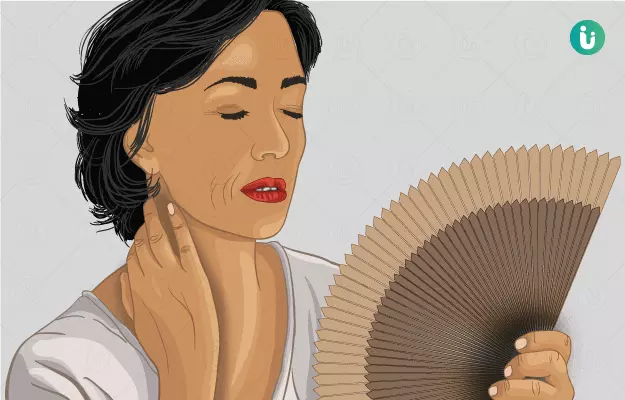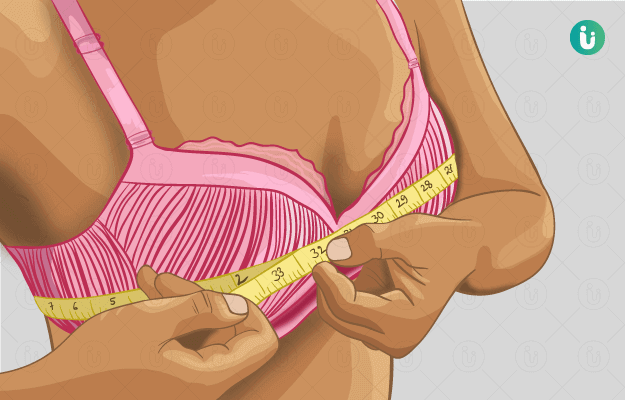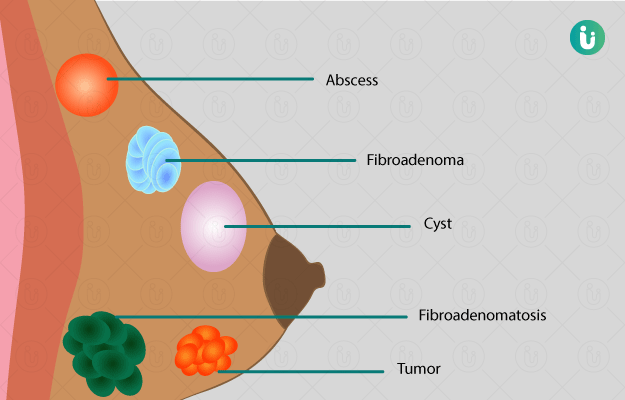Menopause refers to the termination of the menstrual cycle of a woman and is marked at 12 months after the last menstrual cycle. About 1.5 million women undergo menopause each year, which is a natural process, inevitably experienced around the age of 50.
Menopause marks the cessation of ovulation and the end of reproductive capacity in females. It presents with several symptoms like vaginal dryness, hot flushes, insomnia, loss of libido, and headache. Depending on the health status, some women may experience more severe symptoms like bone pain and osteoporosis.
Menopausal symptoms are mostly manageable, and if not, treatments like hormone replacement therapy are available, which cater to provide some relief. But, these treatments have their own side effects including the risk of cancer.
So, instead of opting for treatments, it is advisable that you make peace with this natural body process and consult with your doctor to manage symptoms.
This article will introduce you to the symptoms of menopause and will explain ways to manage these concerns as advised by gynaecological experts along with describing the correct age of menopause.
- Menopause age
- Perimenopause
- Menopause symptoms and their management
- Other effects of menopause
- Menopause treatment
Menopause age
Menopausal age is an important deciding factor for the risk of several disorders, which are expected to be occurring around this age. The age of menopause varies from woman to woman based on their health and hormonal status and even depends on the demographics. Indian women are more likely to experience menopause earlier than the Western world.
The estimated menopausal age for most women across the world is 51 years, but for Indian women, it happens to be around 46.2 years. You may experience menopause anywhere between 45 to 50 years, though, experiencing it even earlier may be a matter of concern.
Early menopause is not only associated with an earlier infertility, as it may be said, but also increases the risk of osteoporosis. So, it is important that menopause is predicted earlier for the symptoms to be managed in time.
Menopause can be predicted on the basis of an erratic menstrual cycle which includes irregular bleeding, and changes in the nature, regularity, duration and timing of menstrual cycle.
Higher BMI and upper body fat distribution along with the use of oral contraceptives is generally associated with a later menopause, which also means that women with a lower body weight are likely to experience menopause earlier. Also, women from a lower socioeconomic background and those who have not borne children are more likely to experience menopause earlier.
In order to manage the health effects of early menopause, vitamin D and calcium supplements along with other micronutrient supplements are started before menopause occurs, as per the health condition. It is, however, imperative that you do not begin these supplements without your doctor’s consult. Timely intervention of lifestyle modifications is another treatment that must be begun on time and will be described throughout this article.
Perimenopause
Menopause is caused due to the changes in hormonal activity that was responsible for ovulation, and thus, the occurrence of menstrual cycle at each month. As a woman ages, there is a downfall in the number of follicles that mature, which causes the symptoms of irregular menstruation before menopause actually occurs. Follicles are responsible for the release of the egg from the ovaries and reduction in follicular activity is the likely mechanism for the occurrence of menopause. This reduction starts to occur at about the age of 40 after which the number of follicles declines even further and then no follicles are matured when the cessation of the cycle occurs.
Menopause symptoms and their management
As your body undergoes a plethora of physical, physiological and even emotional changes during the time of menopause, there are several symptoms that you experience. These include:
Hot flushes and night sweats
Hot flushes are one of the most common menopausal or perimenopausal symptom, experienced by almost 75% of women. Hot flush refers to a sudden hot or feverish feeling that is experienced for a few days after menopause. The symptom may subside within 2 days of menopause but it also has a chance of continuing until years later. This symptom not only affects the quality of life, daily activities and work efficiency, but also has an impact on sleep, most often causing sleep disturbances. Around menopause, women often tend to wake up during the night due to night sweats from these flushes.
Hot flushes are one of the primary reasons that women seek hormonal therapy after menopause but they can be managed by other treatment interventions like oral contraceptives and selective serotonin reuptake inhibitors, which will be prescribed to you by your doctor while you are transitioning to menopause. Vitamin E supplements may also be prescribed. Other than this, weight management or reduction along with cessation of smoking and alcohol habits will likely help with your symptoms.
(Read more: How to quit alcohol)
Vaginal dryness and loss of libido
Vaginal dryness is another common menopause symptom, which is a great matter of concern as it affects sexual activity. This occurs due to the loss of collagen and adipose tissue in the region of the vulva. Due to a decrease in the thickness of the superficial layer of vagina, there is also a reduction in vaginal secretions, causing its dryness. Dryness of the vagina may be a common cause of pain during coitus and loss of libido among postmenopausal women. However, the precise cause of sexual dysfunction during menopause is not yet known.
While hormonal replacement therapies are effective in the management of a dry vagina, topical estrogen application is a much more convenient way to manage this condition. Other than this, use of lubricants while having sexual intercourse can be helpful in the management of dyspareunia (painful sex).
(Read more: How to improve libido)
Vaginal infections and urinary tract infections
With a decrease in vaginal secretions around menopause, there is also a change in the vaginal pH. As the normal vaginal pH of 4.5 is disturbed, there is an increased likelihood of vaginal infections due to a disturbance in the acidic environment, which was hostile to the growth of microorganisms. Overgrowth and colonisation of these bacteria is what is responsible for the occurrence of vaginal infections around menopause.
Vaginal infections can be prevented by taking good care of your vaginal health and by the practice of safe sex. It is also important that you do not touch your vagina with unclean hands and avoid the practice of vaginal douching. Douching can irritate the already thin and sensitive vaginal lining post-menopause.
During menopause, genitourinary atrophy will be seen in addition to vaginal atrophy. This leads to an increased risk of urinary tract infection, which will present with symptoms like frequent urination or painful micturition. Frequent urination is anyway a common symptom during menopause.
(Read more: Vaginal pain causes)
Postmenopausal osteoporosis
Osteoporosis refers to a disease marked by a reduction in the bone mass density, causing bone pain and brittle bones. These bones have a higher tendency to fracture. It has been found that postmenopausal women have a greater risk of developing osteoporosis due to a reduction in the levels of the hormone oestrogen, which helps to protect the bone structure. As this happens, backache, pain on exertion, frequent fractures and the development of a hunchback are the symptoms.
While hormone therapy is effective in the management of osteoporosis, it can also be managed with the help of simple lifestyle changes like cessation of smoking, an increase in physical activity along with the intake of a balanced diet. Women around menopause must also begin taking calcium and vitamin D supplements as directed by their physician.
Sleep disturbances and insomnia
Insomnia refers to a reduction in the quality or quantity of sleep or both. Insomnia along with other sleep disturbances like repeated awakening and night sweats are common in postmenopausal women due to the hormonal changes experienced during this period. An average of 25 minutes of sleep has been estimated to be compromised in women around menopause.
While this can be managed with the help of pharmacological interventions, poor sleep in perimenopausal women can also be dealt with the help of simple remedies. Sleep meditation, relaxation and intake of a relaxing tea right before bed can be helpful. An increase in physical activity and exercise can also help regulate the sleep cycle in postmenopausal women.
Mood swings and depression
Quite obviously the ever-changing hormones during menopause will have an effect on your mood. The number of physical changes you experience during this phase and the stigma around menopause may add on to your concerns. This is experienced differently by different women. While some women may have no effects at all, others may actually go into a state of depression. Some studies also suggested that a reduction in cognition may occur around menopause, so, it is imperative that you take care of your mental health. If you are facing any mental health issues, it is important that you talk to your doctor. It is also imperative that you understand that menopause is a normal body mechanism and not a disease that you have to deal with. Acceptance of this phase will help you in managing your symptoms better.
Other effects of menopause
While the distressing symptoms of menopause are widely discussed, little is recognised of the good effects of menopause. Some women, especially those who had heavy or painful periods enjoy better health after menopause and are greatly relieved. Also, women with irregular menstruation and those taking oral contraceptives are rejoiced of not having to take these medications. Right, one of the good parts of menopause is that you do not have to worry about birth control, so, it can have a positive impact on your sex life. Since women spend almost one-third of their life after menopause, it is important that they be happy and emotionally satisfied.
Menopause treatment
Since menopause is a natural mechanism of the body, those having it at the right age do not require any treatment. However, some women opt for treatments due to the severity of symptoms experienced. Following are the available treatment options:
Hormone replacement therapy or hormone therapy (HRT)
This is the most commonly used and the most effective therapy, which helps in the management of most menopausal symptoms. In this therapy, estrogen alone or estrogen in combination with progestin, is given in the form of oral tablets, dermal patches or injections to manage symptoms. But, the symptoms will return after the discontinuation of the therapy and the side effects of the therapy are quite severe including the risk of breast cancer and cardiovascular diseases.
(Read more: Female hormones)
Estrogen creams
Estrogen creams are a safer way of managing topical symptoms of menopause like vaginal dryness. This cream is recommended to be used once to thrice weekly as per your doctor’s instructions.
Phytoestrogens and black cohosh
Phytoestrogens are naturally-occurring, plant-based food compounds, which significantly help in the management of postmenopausal symptoms including vaginal dryness and hot flushes. They may also reduce the risk of osteoporosis in women. Most natural fruits and vegetables are rich in phytoestrogens, but, soy products have been determined to have the highest content of these compounds.
Certain herbs and natural supplements like black cohosh are also commonly used by women to manage menopause symptoms, but, the evidence of their use is limited.
It is not advisable to take any drugs or natural supplements without your doctor’s consult.
References
- Maninder Ahuja.Age of menopause and determinants of menopause age: A PAN India survey by IMS. 2016 Jul-Sep; 7(3): 126–131. PMID: 27721640
- Ellen B. Gold. The Timing of the Age at Which Natural Menopause Occurs. 2011 Sep; 38(3): 425–440. PMID: 21961711
- InformedHealth.org [Internet]. Cologne, Germany: Institute for Quality and Efficiency in Health Care (IQWiG); 2006. Menopause: Overview. 2006 Feb 14 [Updated 2016 Aug 24]
- Cite this Page Close Warren MP, Shu AR, Dominguez JE. Menopause and Hormone Replacement. [Updated 2015 Feb 25]. In: Feingold KR, Anawalt B, Boyce A, et al., editors. Endotext [Internet]. South Dartmouth (MA): MDText.com, Inc.; 2000
- Cite this Page Close Warren MP, Shu AR, Dominguez JE. Menopause and Hormone Replacement. [Updated 2015 Feb 25]. In: Feingold KR, Anawalt B, Boyce A, et al., editors. Endotext [Internet]. South Dartmouth (MA): MDText.com, Inc.; 2000
- Takahashi TA, Johnson KM.Menopause. 2015 May;99(3):521-34. PMID: 25841598
- Patisaul HB, Jefferson W. The pros and cons of phytoestrogens. 2010 Oct;31(4):400-19. PMID: 20347861



































